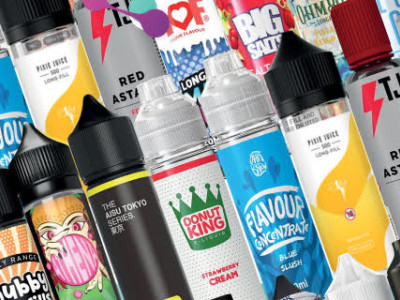At the start, the team made the fatuous claim that vape products are “often targeted to youth and pregnant women”. It continues: “Although originally introduced as safer or smoking cessation replacements, recent studies have shown that [electronic cigarettes] indeed cause various forms of toxicity.”
Lead author Prue Talbot, a professor in the Department of Molecular, Cell and Systems Biology, said: "SIMH is a protective, survival response. Our data show that exposure of stem cells to e-liquids, aerosols, or nicotine produces a response that leads to SIMH."
Atena Zahedi, who received her doctoral degree in bioengineering this year, also worked on the study: “Although originally introduced as safer, ECs, such as Vuse and JUUL, are not harmless. Even short-term exposure can stress cells in a manner that may lead, with chronic use, to cell death or disease. Our observations are likely to pertain to any product containing nicotine."
"The high levels of nicotine in ECs lead to a nicotine flooding of special receptors in the neural stem cell membrane. Nicotine binds to these receptors, causing them to open up. Calcium and other ions begin to enter the cell. Eventually, a calcium overload follows."
"If the nicotine stress persists, SIMH collapses, the neural stem cells get damaged and could eventually die. If that happens, no more specialized cells -- astrocytes and neurons, for example -- can be produced from stem cells."
Talbot believes this is important when considering teens and pregnant women: "Their brains are in a critical developmental stage. Nicotine exposure during prenatal or adolescent development can affect the brain in multiple ways that may impair memory, learning, and cognition. Furthermore, addiction and dependence on nicotine in youth are pressing concerns. It's worth stressing that it is nicotine that is doing damage to neural stem cells and their mitochondria. We should be concerned about this, given that nicotine is now widely available in ECs and their refill fluids."
Some commentators didn’t mince their words and called Prue Talbot “an idiot”.
Charles Gardner, PhD, said: "...often targeted to youth and pregnant mothers"? Imagine the evil intent these people have to assume if they believe such nonsense. It's a childlike view of good and evil.”
Dr Karl Snæ said: “This is hilarious (not), use mouse NCS, bathe them in 44 mg/mL nicotine for 25 hours - yes they had a timer on it! Then scary tales of effect on humans and pregnant mothers - really stupid and harmful BS
Then, he asked Atena Zahedi directly: “Did you try Chocolate, coffee, cigarette smoke or even spinach for any comparison?”
Dr Snæ then pointed out the shortcomings in extrapolating the “results” to humans and their foetuses, highlighting that bathing mouse cells in a concentrated nicotine bath for 24 hours has very little relevance for humans.
“At first thought this was pure joke, but are you serious?”
Manuel Peitsch, Chief Scientific Officer at Philip Morris Int., commented: “Unfortunately irrelevant to ecig toxicology: Neural stem cells are not directly exposed to e-liquids or vapour. Nicotine concentrations are orders of magnitude above maximum human exposure from PK data. Remember the law of toxicology (Paracelsus).”
Resources:
- “Mitochondrial Stress Response in Neural Stem Cells Exposed to Electronic Cigarettes” by Zahedi, Phandthong, Chaili, Leung, Omaiye, and Talbot – [link]
Dave Cross
Journalist at POTVDave is a freelance writer; with articles on music, motorbikes, football, pop-science, vaping and tobacco harm reduction in Sounds, Melody Maker, UBG, AWoL, Bike, When Saturday Comes, Vape News Magazine, and syndicated across the Johnston Press group. He was published in an anthology of “Greatest Football Writing”, but still believes this was a mistake. Dave contributes sketches to comedy shows and used to co-host a radio sketch show. He’s worked with numerous vape companies to develop content for their websites.
Join the discussion
Harm Reduction For The Rich
The United Kingdom risks becoming a harm reduction country only for the wealthy, according to Michael Landl of the World Vapers’ Alliance
Longfills as an Alternative to Disposables
The disposable vape ban will impact many people, but there’s no reason to be concerned… Grab yourself a pod kit and a Longfill and you’ll be back to vaping the way you want to, just in a cheaper, more environmentally friendly and legal way.
COP10 is a Threat to Safer Nicotine Products
The EU obscures its position on low-risk alternatives to smoking before the WHO COP10 conference in Panama, starting Monday
Nicotine Is Not A Culprit
Planet of the Vapes has always encouraged smokers to use the quit product that works best for them, and snus is a product that seems to be unfairly blocked because it contains nicotine












